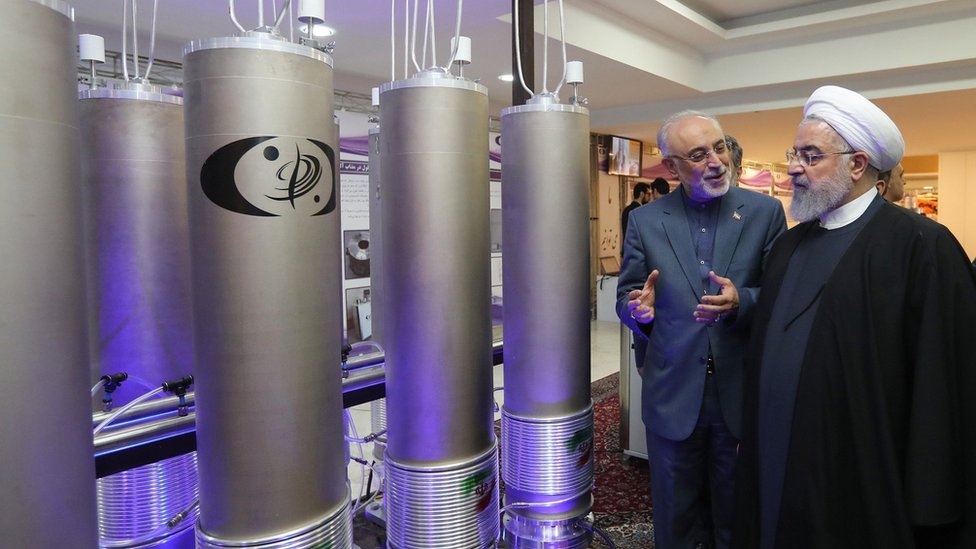
Iran could boost its uranium enrichment to a purity of 60 percent if the country needs it, Supreme Leader Ali Hosseini Khamenei has said a day before a law passed in November 2020 to limit international nuclear inspections comes into force.
In a speech on Monday to members of the Assembly of Experts, Khamenei said “We are determined to gain nuclear capabilities proportionate to the country’s needs and for this reason, the limit for Iran’s enrichment won’t be 20 percent”, Al Jazeera reported.
The restricting of international inspections of its nuclear facilities is seen as a bid to pressure European countries and President Joe Biden’s administration to lift economic sanctions and restore the 2015 nuclear deal which was abandoned in 2018 by the Trump administration. Many countries incuding the US and the UN have crticised the restrictions as a “dangerous” move.
The Associated Press reports that a confidential document prepared by The International Atomic Energy Agency was distributed to member countries which showed Iran had added 17.6 kilograms (38.8 pounds) of uranium enriched up to 20% to its stockpile as of Feb. 16. It was the first official confirmation of plans Iran announced in January to enrich to the greater purity, which is just a technical step away from weapons-grade levels and far past the 3.67% purity allowed under the nuclear deal known as the Joint Comprehensive Plan of Action, or JCPOA.
Iran also increased its total enriched uranium stockpile to 2,967.8 kilograms (6,542.9 pounds), up from 2,442.9 kilograms (5,385.7 pounds) reported on Nov. 2, the IAEA reported.
The JCPOA was the most significant pact between Iran and major world powers since its 1979 Islamic revolution, and Germany, France and Britain stressed their commitment Tuesday to preserving it, urging Iran to “stop and reverse all measures that reduce transparency.”
“The E3 are united in underlining the dangerous nature of this decision,” the European powers said in a statement. “It will significantly constrain the IAEA’s access to sites and to safeguards-relevant information.”
Iranian Foreign Minister Mohammad Javad Zarif said a new law had gone into effect Tuesday morning, under which Iran will no longer share surveillance footage of its nuclear facilities with the U.N. agency. “We never gave them live video, but (recordings) were given daily and weekly,” Zarif said of the IAEA’s access to information recorded by camera monitors. “The tape recording of our (nuclear) program will be kept in Iran.”
The Atomic Energy Organization of Iran, Tehran’s civilian nuclear agency, has promised to preserve the tapes for three months, then hand them over to the IAEA — but only if granted sanctions relief. Otherwise, Iran has vowed to erase the tapes, narrowing the window for a diplomatic breakthrough.
Before the nuclear deal, in 2013, Iran’s stockpile of enriched uranium was already more than 7,000 kilograms (7.72 tons) with higher enrichment, but it didn’t pursue a bomb.
“As of midnight tonight [20:30 GMT], we will not have … commitments beyond safeguards. Necessary orders have been issued to the nuclear facilities,” Tasnim quoted Kazem Gharibabadi, Iran’s envoy at the International Atomic Energy Agency, as saying.
The Biden administration has said it’s ready to join talks with Iran and world powers to discuss a return to the deal. Zarif responded to the overture cautiously Tuesday, saying Iran is “assessing the idea of an unofficial meeting” with the parties to the accord “in which America is invited as a non-member.”
In further diplomatic moves, the new U.S. administration rescinded the Trump-imposed U.N. sanctions and eased restrictions on the domestic travel of Iranian diplomats posted to the United Nations.
